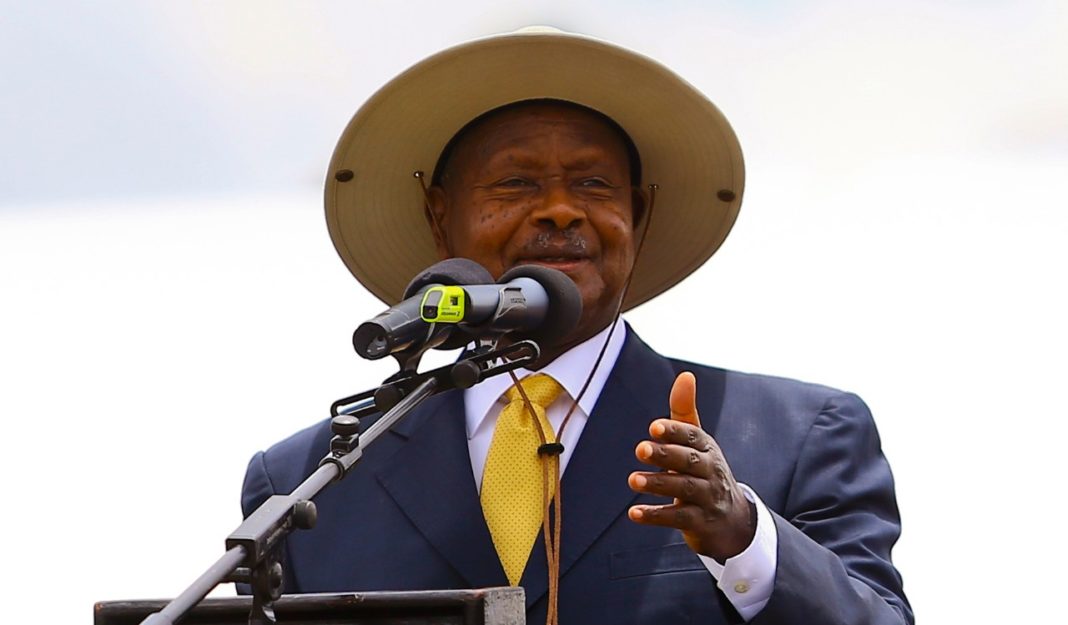A substantial majority of 9 out of 10 Ugandans or 90 per cent of the citizens sampled in a recent survey say they believe it is their right to criticize the President for making bad decisions and not listening to advice.
These findings of the report were released by Twaweza in a research brief titled Frankly Speaking: Ugandans’ opinions and experiences of information and the media.
The brief is based on data from Sauti za Wananchi, Africa’s first nationally representative high-frequency mobile phone survey. The findings are based on data collected from 1,980 respondents across Uganda in November 2017.
The survey also shows that 85 per cent of the respondents believe it is their right to criticize the government for making bad decisions whereas 87 per cent of the respondents say it is their right to criticize their Member of Parliament (MP) for being lazy. 89 per cent said they would also criticize their MPs for not caring about constituents (89 per cent).
A large majority (78 per cent) believe that criticism is constructive, helping government to correct mistakes (78 per cent) while 72 per cent think it makes the country stronger.
The survey further shows that 6 out of 10 respondents think the media should have the right to publish any views and ideas without government control, 68 per cent think that radio and television stations should be free to produce their own news programs whereas 72 per cent of the respondents think that the news media should investigate and report on government mistakes and corruption.
Additionally citizens have an active culture of seeking information, at least from some government institutions. In the past three months before November 2017, the majority of citizens sought information from public health facilities (87 per cent), public schools (79 per cent), and village or Local Council I offices (62 per cent).
A significant minority also demand information from water suppliers (31 per cent), government offices (27 per cent) and political parties (23 per cent).
“It should be noted, however, that most of these requests are for information about services, rather than more sensitive information about staff¬ing, budgets and other resources,” reads part of the survey report.
Furthermore most Ugandans believe in their right to government information – three out of four say it should only be restricted for national security reasons (71 per cent). Ugandans also have faith in government institutions’ responsiveness; more than 4 out of 10 believe that if they ask they will get the following information: district development plans and budgets from their local authority (41 per cent), details of how to report wrongdoing in government (48 per cent), and how much capitation grant their school had received (50 per cent).
However, the report says, the reality often does match citizens’ democratic aspirations. Most citizens do feel free to criticize leaders and institutions closer to them such as Local Council V Chairs (56 per cent), their MP (59 per cent), their Local Council III Chair (64 per cent) and their village or street chairs (68 per cent).
But citizens are unsure about criticizing national leaders including the President (44 per cent), the Vice President (45 per cent) and the Prime Minister (46 per cent).
And although citizens support media freedom and seek government information, they have very low levels of trust in all sources of information – from the media or that provided by government officials and leaders. No information source is trusted completely by the majority of Ugandans, from Local Council 1 Chairs (45 per cent completely trust their information), the President (34 per cent), or MPs from the ruling party (26 per cent) or the opposition (22 per cent), to radio (48 per cent), public meetings (39 per cent), people they know well (34 per cent), or social media (12 per cent).

Furthermore, almost all citizens are unaware of laws that govern their information and communication rights including the Uganda Communications Commission Act (2013) (3 per cent), the Computer Misuse Act (3 per cent) and the Access to Information Act (2005) and its regulations (1 per cent).
Similarly, few citizens are aware of government platforms to proactively provide information to citizens and to seek their feedback including their experiences and opinions. Very few have ever heard of “Barazas” (community-based forums) (6 per cent), the budget information website (4 per cent) or the Ask Your Government platform (3 per cent). Nonetheless 1 out of 50 citizens (3 per cent) say they have participated in the local forums (Barazas).
However, it is encouraging to note that citizens are well documented and identifiable in government systems: 90 per cent have national ID cards, 66 per cent have voter ID cards, and 56 per cent have birth certificates while far fewer have passports (4 per cent) and driving licenses (5 per cent). There are fairly small variations between demographic groups and no clear patterns that advantage specific groups.
Marie Nanyanzi, Sauti za Wananchi Officer at Twaweza, said: “On the positive side there is a fairly active culture of citizens seeking information from government offices and institutions, and of government responding to those requests.
Citizens also support free expression for the media and themselves and see healthy debate and different opinions as constructive, providing support for government.
On the other hand, citizens express low trust for all information they might receive publicly, are not confident of their own personal freedom to criticize and are less likely to seek sensitive information around resources.”
Dr. Mary Goretti Nakabugo Country Lead in Uganda for Twaweza, said: “Citizens’ opinions on access to information and free expression present a challenging outlook for citizen agency. With low levels of trust and the feeling that they are not free to express themselves fully, citizens cannot be expected to participate actively in government processes and projects.”
She however said there was “some cause for optimism in terms of Barazas where millions have been reached by this government feedback and sharing platform. And similarly, the prevalence of identification documents means that citizens are ‘visible’ in the system. Documenting citizens is a first and critical step in ensuring their participation and in delivering better services.”







